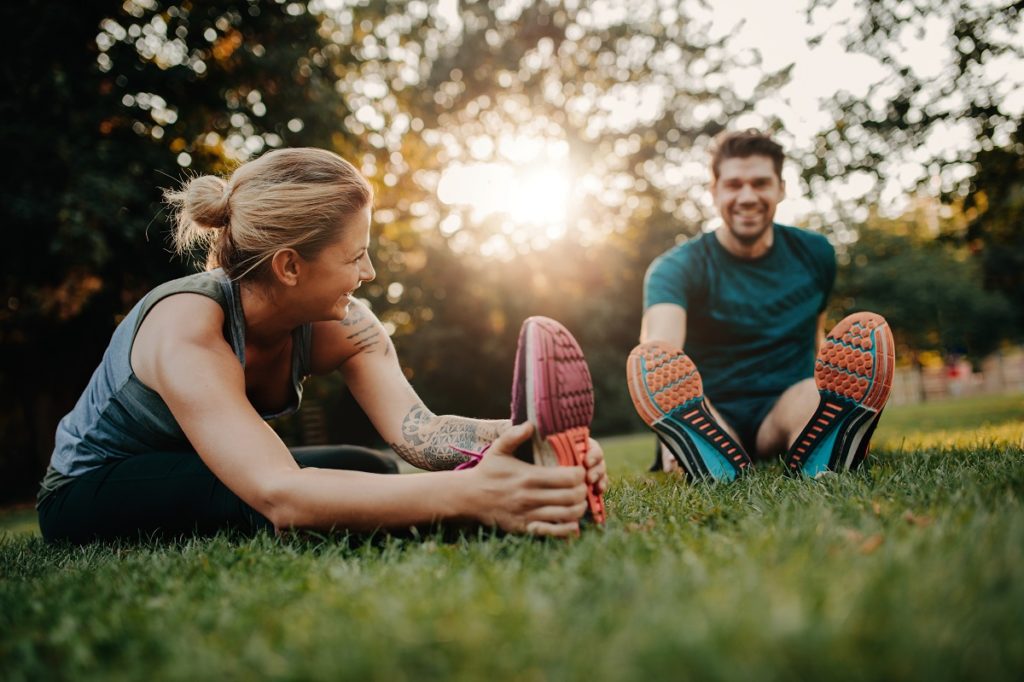
Whether you’re a brave runner who took on “snowpocalypse” without fear, or a treadmill warrior who stayed warm inside when the persistent precipitation threatened to soak your socks, all can rejoice that the weather in Portland is finally drying out. Every year, thousands of our neighbors take advantage of our city’s gorgeous landscape by exercising outdoors, be that a run through Forest Park, a bike ride along the waterfront or a game of hoops at one of our many city parks. Unfortunately, this is also a time of year when many residents wind up in the doctor’s office with aches and pains because of the sudden shift in their activity.
There are plenty of opportunities to take your workout outside, each one packing its own fitness punch, but how do you keep your healthy lifestyle in check when summer weather arrives? Doctors and nurses at The Portland Clinic encourage all of our neighbors to schedule an appointment with their physician to get tips on how to safely ramp up their outdoor exercise plans and to ensure their physical abilities match their new ambitions.
Here are a few of our team’s favorite options for taking your fitness outside, as well as ways to gradually increase your intensity so you don’t try too much too soon.
Take your run outside
Training for a marathon or just looking to become more active? Our network of bridges allows Portlanders to easily tailor the length of their waterfront runs. One loop can range from three to seven miles, depending on which bridges you cross. There are myriad routes to try to vary your mileage. Portland public schools also offer state-of-the-art tracks (with plenty of stairs and bleachers) to use for your fitness well-being.
Lace up your hiking boots
Hiking is great for cardio and lower body strength, which are pillars of a healthy lifestyle. Forest Park, the Columbia River Gorge, Mount Hood and all the Pacific Northwest’s glory offer a tremendous number of trails, peaks, waterfalls and beautiful viewpoints to explore. From short, flat trails with plenty of waterfalls to overnight leg-burners on the way to mountain peaks, you have your pick of picturesque journeys for an afternoon stroll or a weekend adventure.
Take the two-wheeled approach
Portland offers 350 miles of bike-friendly roads in the city – lanes clearly marked and dedicated to cyclists. Combine these lanes with nearby, well-maintained mountain trails and your outdoor cardiovascular-building activity will certainly grow, improving your health with less physical impact than running. Don’t own a bike? In 2016, Portland teamed with Nike to offer a bike-sharing program, Biketown. Subscribe to a year of bike-sharing, or simply rent a bike on the spot at one of the many self-serve bike racks around town.
Stay safe and strong
If you’ve been recovering from an injury this winter, a consultation with your physical therapist will help with your outdoor and more strenuous workouts. Your physical therapist can even assist in preventing chronic pain and increasing balance and strength, whether you’re injured or not. Increasing mobility for a pain-free, full range of movement is a vital component of ensuring your outdoor workouts are sound and effective.
When venturing outside for a workout, it is important to be prepared. Pack food and water, bring a towel and mat, and wear proper-fitting footwear. Stay clear of cliffs, wildlife and moving water. It’s also a smart idea to share your route with a friend or hike with a buddy as a precaution.
Here at The Portland Clinic, we encourage our neighbors who are considering a new outdoor workout routine to schedule an appointment or consultation with our staff of physical therapists and/or their general practitioner. Keep in mind, most physical therapists and orthopedists require a referral from a primary care provider. If you have questions about treatment, please make an appointment with your doctor.


